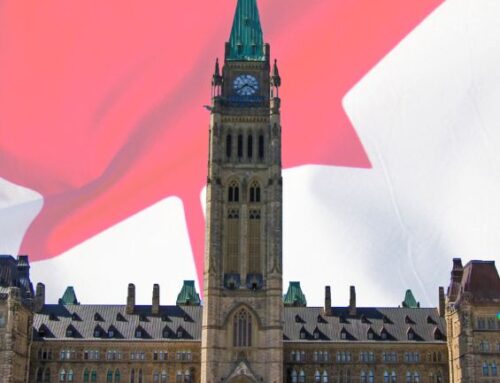In a statement that marked one of the defining moments of the Liberals’ 2000 campaign against the Canadian Alliance, Prime Minister Jean Chretien said the country is enjoying “social peace” on the abortion issue. Holding forth from a similar pro-choice podium, Health Minister Anne McLellan threatened last month to withhold transfer payments to New Brunswick unless the province funded abortions performed in private clinics. “Obviously, abortion is a medically necessary service,” she declared. “Therefore, it has to be insured.” However, a dramatic new poll shows that the majority of Canadians lack the Liberal cabinet’s commitment to a mother’s alleged “right” to abort her unborn child.
 The Leger Marketing poll, commissioned by the pro-life group Life Canada, was conducted October 1-6 and October 15-20. Its first question, asked of 1,501 Canadians, read, “At what point during human development should the law protect human life?” Only 30 per cent of respondents answered “from birth,” a position reflecting current law and Liberal position. More than half favoured some protection for the unborn. 37 per cent wanted human beings protected from conception, 13 per cent after three months of pregnancy and six per cent after six months. Fourteen percent did not know or would not answer.
The Leger Marketing poll, commissioned by the pro-life group Life Canada, was conducted October 1-6 and October 15-20. Its first question, asked of 1,501 Canadians, read, “At what point during human development should the law protect human life?” Only 30 per cent of respondents answered “from birth,” a position reflecting current law and Liberal position. More than half favoured some protection for the unborn. 37 per cent wanted human beings protected from conception, 13 per cent after three months of pregnancy and six per cent after six months. Fourteen percent did not know or would not answer.
The second question, asked of 3,010 Canadians, dealt with the use of public funds. Only 23 per cent said taxpayers should pay for all abortions. On the other hand, 15 per cent said abortion should be a private responsibility, and 51 per cent said public funds should pay for abortions only when the mother’s life is endangered, or in rape and incest cases. Eleven percent would not answer or had no opinion.
“It’s pretty obvious that Canadians don’t want the status quo,” said a heartened Peter Ryan, outgoing president of Life Canada. He believes pro-life educational efforts are starting to work. “Pushing for intermediate steps towards protecting all human life can be done,” he said. Such steps could include curtailing funding. of abortions or passing informed-consent legislation.
Two federal politicians agree pro-lifers must use the poll results wisely. Pro-life Liberal MP Tom Wappel is pleasantly surprised by the results, but refuses to allow his party to be blamed for defying the majority’s wishes. “MPs of many parties think the issue is too explosive, too divisive,” Wappel says. “Quit blaming the Liberal Party, because they are just a whipping boy.” He feels pro-lifers need to educate the public until a significant majority, perhaps 70 per cent, demand change. That way, MPs will feel a pro-life stance gains more votes than it loses. “Until people start to put their votes where their convictions are, change will be difficult,” he adds.
The MP notes two-thirds of Saskatchewan voters supported de-funding abortion in the early l990s, but in the same vote, elected a pro-abortion NDP government – and then re-elected the same party after it ignored the referendum results. “Constituents continually elect people who do not represent their values because they do a good job in the constituency or belong to the right party, and then are surprised when they vote against their constituents’ convictions,” Wappel observes.
Canadian Alliance MP Garry Breitkreuz believes pro-lifers can effect change by identifying “people of integrity” to support and elect. “They need to find people they can trust to stand by and act on their convictions when people aren’t standing over them watching,” he says. The pro-life MP concludes, “We can move the line slowly on abortion, but it has to be done carefully and we need to be very persuasive.”
This article originally appeared in the Nov. 18 The Report.




